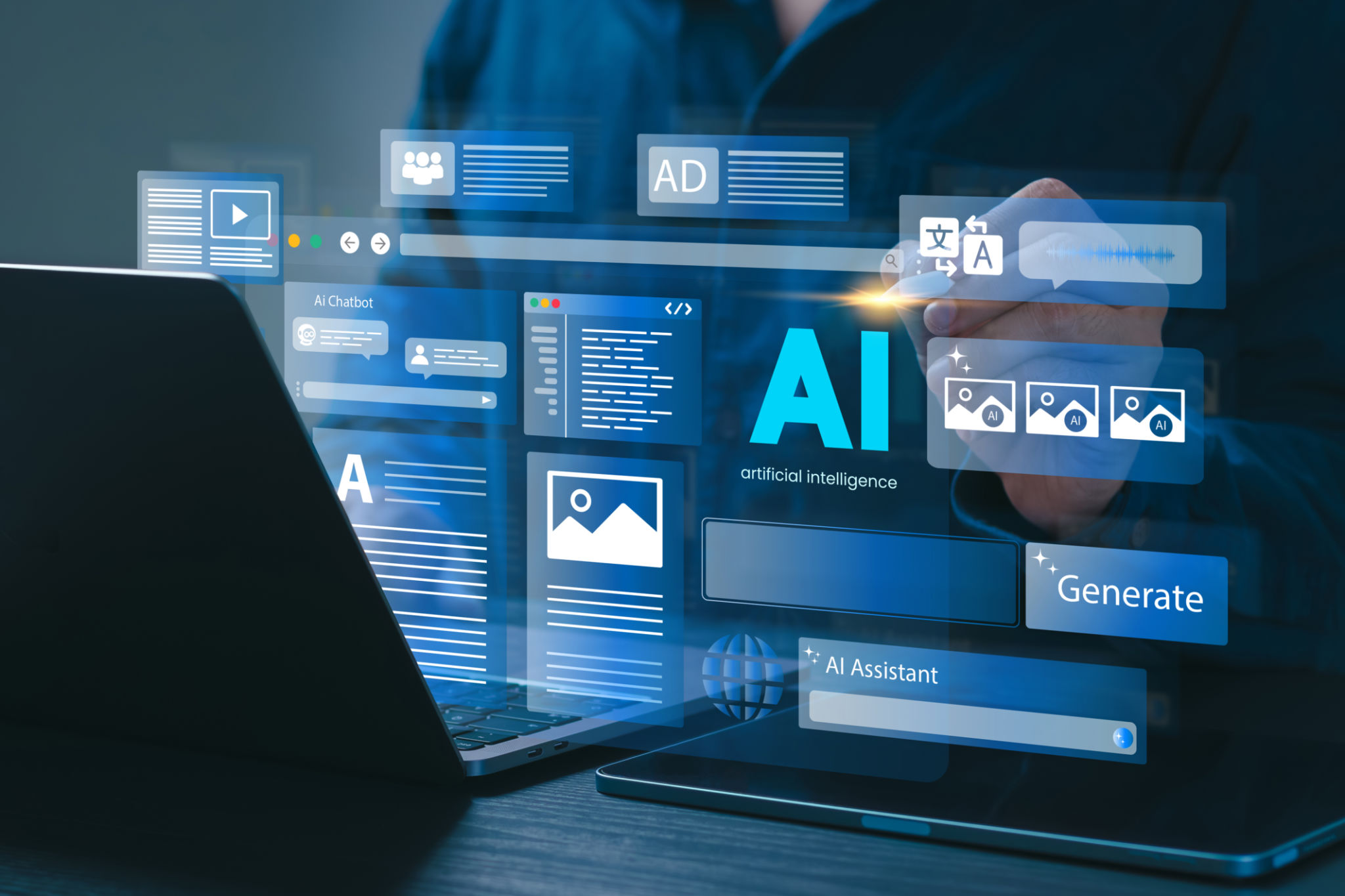Debunking Myths About AI in Marketing: What Every Business Should Know
Understanding AI in Marketing
Artificial Intelligence (AI) has revolutionized the marketing industry, offering new tools and insights for businesses to connect with their audience. However, there are numerous myths surrounding AI that can cause confusion and hesitation in its adoption. To help businesses make informed decisions, it's essential to debunk these myths and understand what AI truly offers in the marketing realm.

Myth 1: AI Replaces Human Creativity
One common myth is that AI will replace human creativity in marketing. While AI can automate tasks and analyze data more efficiently, it lacks the emotional intelligence and creative spark that humans bring to the table. Instead of replacing creativity, AI acts as a powerful tool that enhances human efforts, allowing marketers to focus on strategy and innovation.
AI can handle repetitive and data-driven tasks, enabling marketers to devote more time to brainstorming and developing creative campaigns. By automating mundane processes such as data collection and analysis, AI empowers marketers to craft personalized and engaging content that resonates with their audience.
Myth 2: AI Is Only for Big Companies
Another misconception is that only large corporations with ample resources can leverage AI technology. In reality, AI solutions are becoming increasingly accessible to businesses of all sizes. There are numerous affordable and scalable AI tools designed to meet the needs of small and medium-sized enterprises.

From chatbots that enhance customer service to AI-driven analytics platforms, businesses of any size can implement AI to improve efficiency and customer engagement. The democratization of AI technology ensures that even startups can benefit from its capabilities without breaking the bank.
Myth 3: AI Lacks Accuracy
Some believe that AI is prone to errors and cannot be trusted with crucial marketing decisions. While no technology is infallible, AI systems are continually learning and improving. Machine learning algorithms analyze vast amounts of data to identify patterns and generate insights with a high degree of accuracy.
AI's ability to process and interpret data far surpasses human capabilities, allowing it to make predictions and recommendations based on real-time information. Businesses must ensure they use well-trained models and reliable data sources to maximize AI's accuracy and effectiveness.

The Role of AI in Personalization
AI plays a significant role in delivering personalized marketing experiences. By analyzing customer behavior and preferences, AI can help businesses tailor their messaging and offers to suit individual needs. This level of personalization enhances customer satisfaction and fosters brand loyalty.
AI-driven personalization strategies include targeted email campaigns, product recommendations, and dynamic website content that adapts to user behavior. These capabilities allow businesses to connect with their audience on a deeper level, driving engagement and conversions.
Myth 4: Implementing AI Is Complex
Many businesses shy away from adopting AI due to perceived complexity and implementation challenges. However, modern AI tools are designed with user-friendliness in mind, offering intuitive interfaces and support for seamless integration.

Businesses can start small by incorporating specific AI solutions tailored to their needs, gradually expanding their use of AI as they become more comfortable. With proper guidance and support, implementing AI can be a straightforward process that yields significant benefits.
Embracing AI for Future Success
As we debunk these myths, it becomes clear that AI is not an intimidating force but an invaluable ally for marketers. By understanding its true potential and capabilities, businesses can harness AI to stay competitive and achieve long-term success in an ever-evolving market landscape.
Embracing AI in marketing not only boosts efficiency but also opens up new opportunities for creativity and innovation. By dispelling misconceptions and leveraging AI's strengths, businesses can unlock new levels of growth and customer engagement.
